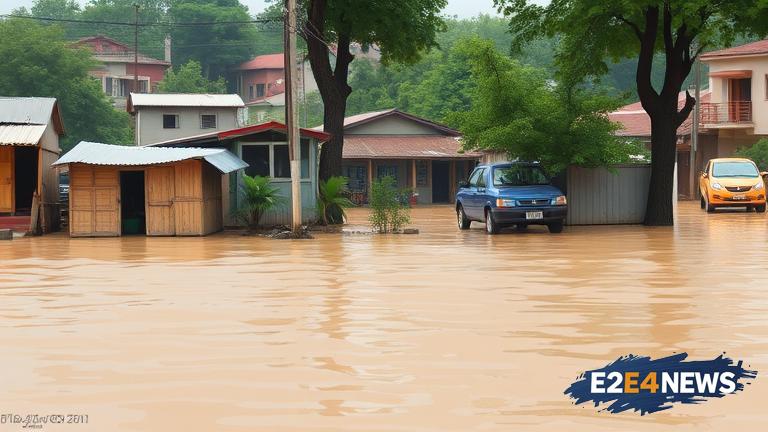The recent floods in Pakistan have brought to light the inadequacies of the National Disaster Management Authority (NDMA) in responding to natural disasters. The NDMA, established in 2010, is responsible for coordinating disaster response efforts at the national level. However, the authority has faced criticism for its slow response to the floods, which have affected millions of people across the country. The floods, caused by heavy monsoon rains, have resulted in widespread destruction, with thousands of homes and businesses destroyed. The NDMA’s response to the crisis has been hampered by a lack of funding, with the authority relying on international aid to support its efforts. The Pakistani government has also been criticized for its handling of the crisis, with many accusing it of being slow to respond to the needs of affected communities. The floods have also highlighted the need for improved disaster risk reduction and management strategies in Pakistan. The country is prone to natural disasters, including floods, earthquakes, and landslides, and the NDMA’s ability to respond to these events is crucial. However, the authority’s lack of resources and capacity has hindered its ability to effectively respond to disasters. The international community has pledged support to Pakistan, with many countries providing aid and assistance to affected communities. However, the NDMA’s ability to coordinate and distribute this aid has been questioned. The authority’s failure to provide adequate support to affected communities has resulted in widespread criticism, with many calling for reforms to the NDMA’s structure and operations. The Pakistani government has announced plans to establish a new disaster management authority, which will replace the NDMA. The new authority will have increased powers and resources, and will be responsible for coordinating disaster response efforts at the national level. The establishment of the new authority is seen as a positive step towards improving disaster management in Pakistan. However, many challenges remain, including the need for increased funding and capacity building. The NDMA’s failures have also highlighted the need for improved coordination and communication between government agencies and affected communities. The authority’s inability to provide timely and effective support to affected communities has resulted in widespread suffering and loss. The floods have also had a significant impact on Pakistan’s economy, with many businesses and industries affected by the disaster. The agricultural sector, which is a major contributor to Pakistan’s economy, has been particularly hard hit. The floods have destroyed crops and livestock, resulting in significant losses for farmers and rural communities. The NDMA’s response to the crisis has been criticized for being inadequate, with many accusing the authority of being slow to respond to the needs of affected communities. The authority’s lack of resources and capacity has hindered its ability to effectively respond to the disaster. The international community has pledged support to Pakistan, but the NDMA’s ability to coordinate and distribute this aid has been questioned. The floods have highlighted the need for improved disaster risk reduction and management strategies in Pakistan, including the need for increased funding and capacity building. The establishment of a new disaster management authority is seen as a positive step towards improving disaster management in Pakistan, but many challenges remain.
